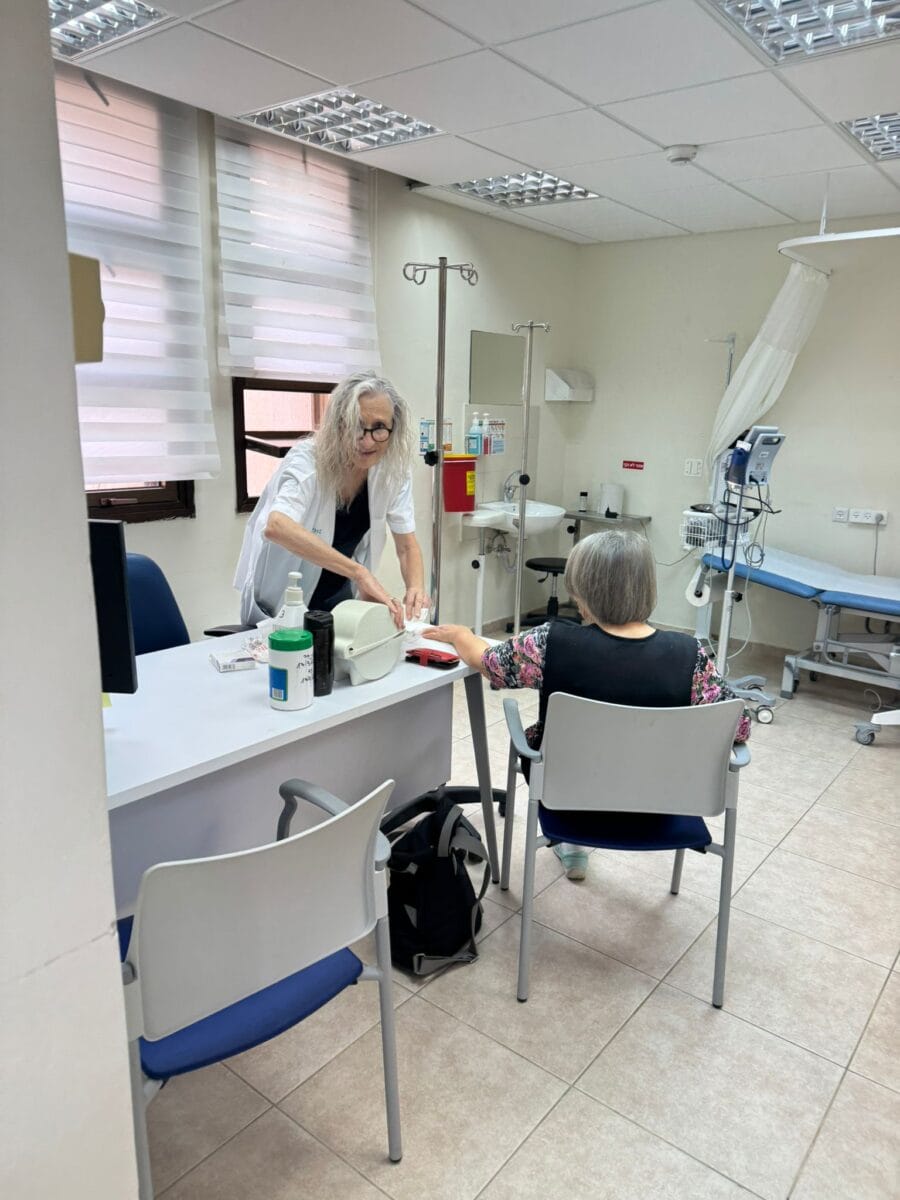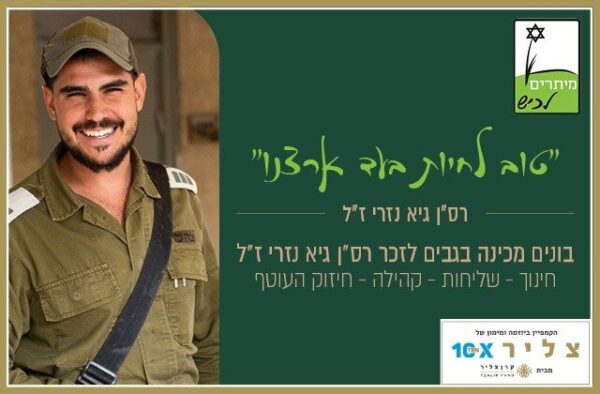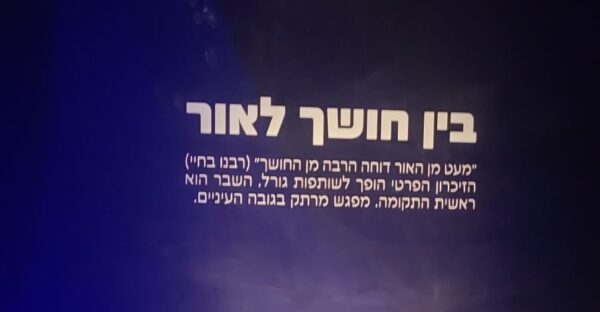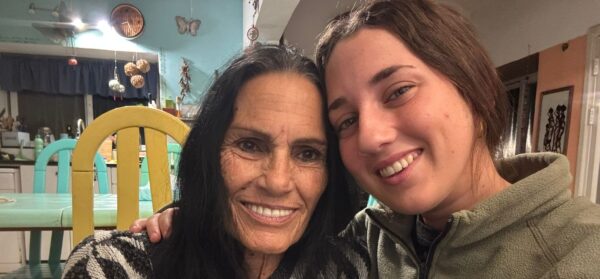Ruti is 70 years old, a resident of Mitzpe Hila in the Western Galilee, and a mother, grandmother, and lifelong caregiver. Her four children live across the country, from the Galilee to the Negev, and together they’ve given her ten grandchildren. Two young men she and her partner welcomed into their family years ago, one through Youth Aliyah and the other as a lone soldier, expanded their home and hearts even further.
For many years, Ruti lived on a kibbutz in the north, where she took on multiple roles before finding her calling as a community nurse. Seeing nursing as a mission, she offered care with compassion and presence, always grounded in a deep understanding of both body and soul. Her path eventually led her to explore Buddhist approaches to the human spirit – knowledge that now shapes the way she listens, supports, and heals.
Today, Ruti volunteers through Shnat Sherut 50 Plus. She works as a nurse in Kibbutz Nir Yitzhak and in the regional clinic serving the Tzohar communities – two areas still reeling from the trauma of October 7. Her presence brings more than medical skill. It brings continuity, reassurance, and a sense of renewed stability to people deciding whether to return home.
A Source of Trust in Times of Uncertainty
“The community clinic is an anchor,” Ruti says. “Especially in these times, it gives people a sense of safety. The health support, combined with a warm place to talk to someone who is not from the community, carries a great sense of responsibility.”
Working side by side with doctors and other health professionals, Ruti offers both preventative care and treatment. But she also creates something more – a space where people feel seen and heard. Her contribution has been key to re-establishing the clinic in Nir Yitzhak, which has become a cornerstone of rebuilding life in the kibbutz after the October tragedy.
Volunteers Strengthening Healthcare Across the South
Ruti’s story reflects the broader contribution of Shnat Sherut 50 Plus volunteers working across southern Israel. In a region already facing a chronic shortage of healthcare professionals, the impact of October 7 deepened the need for skilled, empathetic support. Clinics are overwhelmed. Patients are dealing with trauma, displacement, and disconnection. And volunteers like Ruti are stepping into the gap, not to replace the system, but to reinforce it.
Working Shoulder to Shoulder with Professionals
In several clinics, volunteer nurses and therapists assist with both day-to-day care and long-term recovery. One volunteer with expertise in women’s health co-facilitates prenatal groups alongside a midwife. Another accompanies expectant mothers to appointments, offering reassurance during one of life’s most vulnerable transitions.
Occupational therapists support both young children and elderly residents adjusting to new environments after displacement. These sessions go beyond therapy – they help reestablish routine and restore dignity.
Supporting Mental and Emotional Health
Some volunteers bring expertise in grief and emotional therapy. Their quiet presence in clinics offers patients more than clinical help – they provide a listening ear and a safe place to share. Whether it’s informal conversation, help with scheduling, or community programming, these small acts carry immense meaning.
Reaching the Homebound
In rural areas, where transportation is often a barrier to care, several volunteers help patients who cannot reach the clinic. They support physical rehabilitation, coordinate care, and serve as trusted links between patients and medical staff. The combination of professional training and peer-level communication transforms home care into a personal, compassionate experience.
Helping the Helpers
Clinic staff often reflect that volunteers do more than support patients – they support the teams themselves. In settings where burnout is a daily risk, volunteers bring calm, consistency, and relief. Their presence allows professionals to exhale, recharge, and know they are not carrying the burden alone.
Health Is More Than Medicine
The volunteers of Shnat Sherut 50 Plus remind us that healing is not only about prescriptions and procedures. It’s about presence. It’s about rebuilding trust in systems shaken by trauma. Whether it’s Ruti sitting with a returning family in the clinic, a therapist helping a child recover a sense of routine, or a volunteer helping an elderly man with rehabilitation exercises, the message is the same: we are here with you.
They are not replacing medical teams. They are strengthening them.



